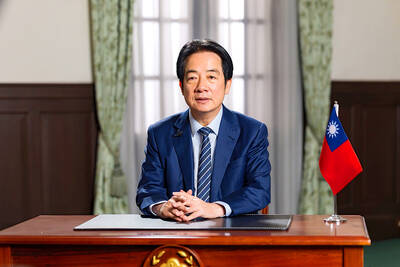Even though Daniel Pearl World Music Day is held in hundreds of countries, the late journalist’s father Judea Pearl remembered to give a shout out to Taiwan.
“Don’t be intimidated by military exercises and other dark clouds over Taiwan,” he tweeted last week. “If you find yourself strolling in Taipei on October 1, drop in to enjoy some good music and press freedom.”
Now in its 21st year, the nation was among the first to hold the event to commemorate the life of Daniel Pearl, who was abducted and killed by terrorists in 2002 while working for the Wall Street Journal in Pakistan. He was also an avid musician. Sponsored by Reporters Without Borders, the event features its usual program of eclectic music, food and drink selections at no cost.

Photo courtesy of Daniel Pearl World Music Day
Reporters without Borders East Asia Bureau Head Cedric Alviani says that it’s an important event that celebrates the values of democracy, human rights and freedom, ideas that were embodied by Daniel Pearl’s commitment as a reporter.
“It’s very important that we carry high these values of friendship, peace and mutual understanding, and the best way to share these values is to have fun together and have a festival,” he says.
Over the past decade, more than 1,500 journalists were killed on assignment, with more than 500 detained, Alviani says.
“Hatred against journalists is not something you only find in authoritarian countries, but also in democracies where more and more politicians are very aggressive against journalists,” he says. “We know that the media system is not perfect, but democracy cannot work without a third party scrutinizing it from the outside.”
Taiwan is a good example, because even though it’s free, the media needs to be more effective and not just focus on entertainment and sensationalism, Alviani says.
“Unfortunately, Taiwanese journalists aren’t given sufficient protection to ensure that in every case they could report free of pressure from the management,” he says.

This month the government ordered a one-year block of Xiaohongshu (小紅書) or Rednote, a Chinese social media platform with more than 3 million users in Taiwan. The government pointed to widespread fraud activity on the platform, along with cybersecurity failures. Officials said that they had reached out to the company and asked it to change. However, they received no response. The pro-China parties, the Chinese Nationalist Party (KMT) and Taiwan People’s Party (TPP), immediately swung into action, denouncing the ban as an attack on free speech. This “free speech” claim was then echoed by the People’s Republic of China (PRC),

Exceptions to the rule are sometimes revealing. For a brief few years, there was an emerging ideological split between the Democratic Progressive Party (DPP) and Chinese Nationalist Party (KMT) that appeared to be pushing the DPP in a direction that would be considered more liberal, and the KMT more conservative. In the previous column, “The KMT-DPP’s bureaucrat-led developmental state” (Dec. 11, page 12), we examined how Taiwan’s democratic system developed, and how both the two main parties largely accepted a similar consensus on how Taiwan should be run domestically and did not split along the left-right lines more familiar in

Many people in Taiwan first learned about universal basic income (UBI) — the idea that the government should provide regular, no-strings-attached payments to each citizen — in 2019. While seeking the Democratic nomination for the 2020 US presidential election, Andrew Yang, a politician of Taiwanese descent, said that, if elected, he’d institute a UBI of US$1,000 per month to “get the economic boot off of people’s throats, allowing them to lift their heads up, breathe, and get excited for the future.” His campaign petered out, but the concept of UBI hasn’t gone away. Throughout the industrialized world, there are fears that

The Democratic Progressive Party (DPP) controlled Executive Yuan (often called the Cabinet) finally fired back at the opposition-controlled Legislative Yuan in their ongoing struggle for control. The opposition Chinese Nationalist Party (KMT) and Taiwan People’s Party (TPP) acted surprised and outraged, but they should have seen it coming. Taiwan is now in a full-blown constitutional crisis. There are still peaceful ways out of this conflict, but with the KMT and TPP leadership in the hands of hardliners and the DPP having lost all patience, there is an alarming chance things could spiral out of control, threatening Taiwan’s democracy. This is no